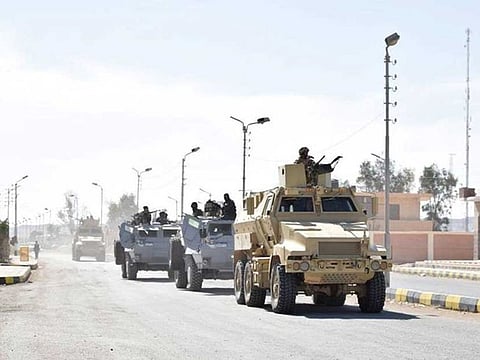Libya is an ultimate test for the Arab order
Restoring the country’s stability will be first step in defeating new regional imperialism

Sixty years after the independence movement in the Arab world, and the exit of the British forces, the region is faced with another and seemingly more dangerous form of imperialism, a regional one.
Two destabilising powers in the region seek to expand their influence in the Arab world, exploiting the political void and inter-Arab friction caused by the so-called Arab Spring.
In addition to the constant threat of Israel’s colonial project in Palestine, Turkey and Iran have since 2011, intensified their actions in the region, using ideology, proxy militias and arms to capture footholds in a region that still is licking its post-Arab Spring wounds.
The Libyan issue is a critical test. Succeeding in pushing back the Turkish aggression will be build on Arab momentum to defeat the growing regional imperialismGulf News
They saw an opportunity in the apparent fragmentation of the Arab political order to hijack the political will in some countries — Iran in Lebanon, Iraq and the Houthis-held parts of Yemen, while Turkey in Syria and Libya with the help of its mercenaries and extremist militias to fuel and exploit ongoing conflicts.
The Turkish involvement in Libya has become a test for the Arab order. UAE Minister of State for Foreign Affairs, Dr. Anwar Gargash put that in perspective on Sunday.
“Perhaps the greatest danger to our region and [Arab] sovereignty is … regional imperialism and its hegemony. That shouldn’t be the fate of the region; solidarity is an Arab necessity and priority,” he tweeted, calling on the Arab world to rise to the challenge.
Also Read: Will Egypt intervene militarily in Libya?
Also Read: A dramatic turn of events in Libya
Egypt has taken the lead in regional efforts to push back the Turkish aggression in Libya, facilitated by Ankara-fostered National Accord government of Fayez Al Sarraj, which is made up of rogue militias that belong to the Muslim Brotherhood and other extremist groups.
Libya in turmoil
These militias, backed by Turkish army and mercenaries, have shut the country’s only source of income, oil, and imposed military-style order in the capital Tripoli.
Egyptian parliament last week gave the greenlight to President Abdel Fattah Al Sisi to deploy the country’s army in eastern Libya to restore order and halt the Turkish advance in those parts. But Egypt needs the support of other Arab countries.
So far, the regional position on Libya has been riddled with futile discussions on the nature and depth of the threat to the Libyan and Egyptian national security as well as to Arab stability.
There has to be an end to these discussions. It is time for a unanimous and an unequivocal Arab position to regain Libyan sovereignty and restore the country’s stability.
The Libyan issue is a critical test. Succeeding in pushing back the Turkish aggression will be build on Arab momentum to defeat the growing regional imperialism.



